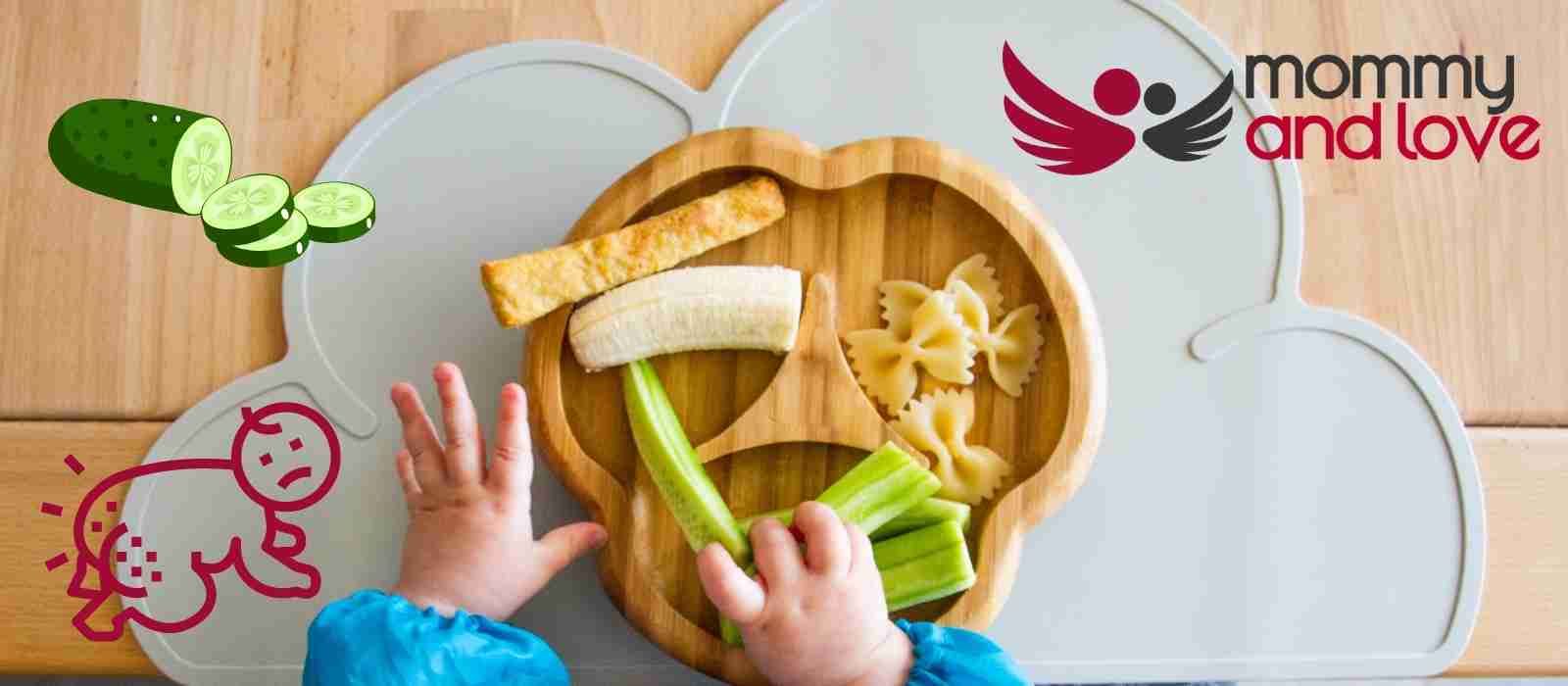Diaper rash is an itchy and uncomfortable condition that can occur in babies or toddlers. This can be caused by anything that comes into contact with your child’s skin, including cloth diapers or even just baby wipes! And did you know that some of the foods that your baby eats can cause diaper rash? Yes, and one of these foods is cucumber.
Is cucumber healthy for babies?
Cucumbers include trace levels of carotenoids, which are elements that, in the body, convert to vitamin A to maintain good vision. Cucumber also contains trace levels of vitamin K and zinc, both of which are vital for bone health and brain development. They are also high in tannins (which aid in wound healing) and phytosterols (to help lower cholesterol).
Cucumbers contain cucurbitacin, an organic chemical that can induce burping and gastrointestinal pain in certain people.
Pickles or pickled cucumbers are soaked in salt and sugar. If you want to introduce pickles, wait until your child is at least 12 months old or at a later date. Choose pickles with the least amount of sodium that is sugar-free or extremely low in sugar.
Pickles have a salty taste and adding salty foods early in your baby’s diet is not advised. Doing so does not have any positive effects nutritionally and can make your baby crave more salt later in life.
Do cucumbers pose a choking hazard to babies and toddlers?
During mealtimes, make sure your child is sitting upright and is always supervised when eating.
Your teething baby will love sinking her gums into cucumbers because they are cool, crisp, and provide a refreshing sensory experience. Doing so can also aid in gum pain. You can get her started consuming cucumbers right away. Make sure you feed her with cucumber in small pieces and keep an eye on her while she does so.
When can babies eat cucumber?
Cucumbers aren’t usually added to your child’s diet until around 9 months of age, even though most babies start solids around 6 months. It’s fine to give cucumbers at that age if they’re pureed or mashed. The reason is cucumbers have a compound called cucurbitacins, which your little one might have a hard time digesting.
New foods are generally great but as a parent, you should be very careful when introducing them to your baby because these other foods might cause more harm than good.
If your baby is allergic to a food, do not add it back to her diet until you talk to a doctor. They should be able to give you some professional advice on when or how to reintroduce them to your baby’s diet.
How to prepare cucumber for your baby
A cucumber’s firm, crunchy texture can be a choking hazard for young children, depending on how it’s served. Choking hazards for young children include raw vegetables and hard solid foods. Serve your child cucumbers cut into age-appropriate pieces and watch her closely when she eats.
You should choose softer, juicier cucumber varieties to allow your child to eat them. It’s not necessary to peel English cucumbers, but it’s a good idea to peel regular cucumbers in order to prevent your child from swallowing a big piece. Get rid of any large or firm seeds, too.
Is it possible for babies to be allergic to cucumbers?
The possibility exists, but it’s unlikely. A raw cucumber can trigger a condition known as oral allergy syndrome, which is caused by cross-reactions between pollen and raw fruits and vegetables. Young children under the age of 3 are less likely to be affected.
Choosing and storing cucumbers for homemade baby food
The choice to buy organic cucumbers is a personal choice as cucumbers are not one of the foods that are most heavily contaminated with pesticides.
Between May and July, cucumbers are in season. However, they are available all year. Ensure your cucumber does not have any cuts or bruises before offering it to your baby or adding it to her diet. The firmness of the cucumber indicates its freshness.
Cucumbers should be stored in the refrigerator’s crisper or the back. You can retain the freshness and flavor of cucumbers if you don’t cut them open, so prepare them only when you are ready to eat them.
Does cucumber cause diaper rash?
Children with food allergies will generally experience diaper rash from cucumbers. A food allergy is typically accompanied by hives, eczema, swelling in the mouth or face, wheezing, fainting, and digestive problems.
Some children who have eaten cucumber might develop diaper rash thereafter. In case your child experiences a red diaper rash after consuming cucumbers, it is likely that the cucumbers caused the diaper rash even though they are not considered acidic foods.
Acidic foods normally cause diaper rash. Citrus fruits and certain foods tend to be difficult for your baby’s digestive system to digest.
Whether or not your baby is allergic to cucumber, you still need to ensure that acidic foods do not damage his or her sensitive skin, or upset his or her stomach, causing symptoms like diarrhea, loose stools, inflamed skin, or even an infection on the outer skin of the diaper area.
Certain foods, especially acidic ones like citrus and tomatoes, can be hard on the baby’s system, whether ingested by the baby or transferred through breast milk.
Frequent diaper changes should help you treat diaper rash. So does giving your child starchy foods.
Talk to a doctor or medical professional if any of the signs and symptoms of the rash don’t go away after a few days.
Takeaway
Do cucumbers cause diaper rash?
Many parents are curious if there is a correlation between cucumbers and diaper rash. The answer is yes, some children who eat cucumbers will experience a red diaper rash as well as diarrhea. If your child experiences this type of reaction after eating cucumbers, it is likely that the vegetable caused the diaper rash.




